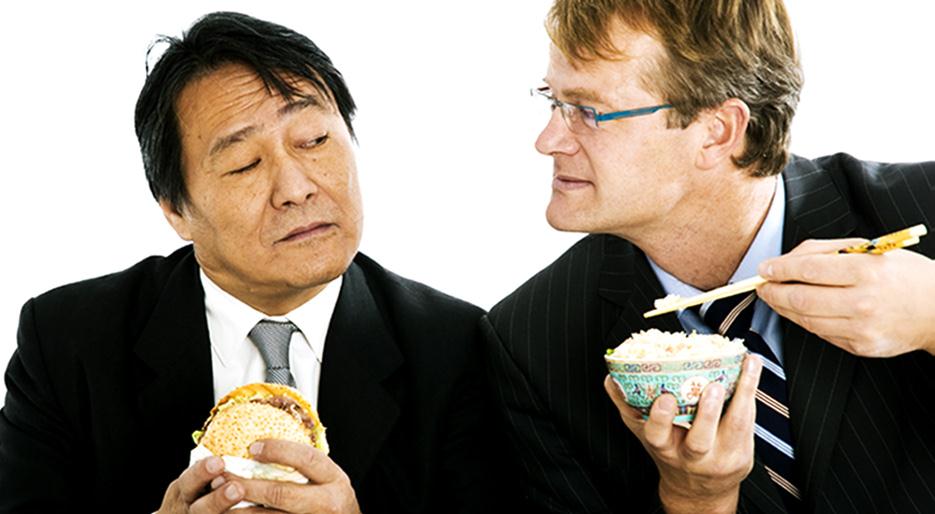Taiwan and mainland China share deep historic and cultural ties, yet 70 years of divergence under separate governments have given rise to noticeable differences between Chinese and Taiwanese society. Having spent significant time in both places, here are some of the most prominent contrasts I observed across a variety of areas including etiquette, nationalism, optimism, and attitudes towards technology, food, minorities, and political freedoms.
Manners and Self-Expression
The concept of 不好意思 (bù hǎo yì si) or “excuse me” plays a much larger role in Taiwanese etiquette than mainland Chinese etiquette. Taiwanese use this phrase frequently and politely to express shyness or apologize for minor offenses like bumping into someone. Mainland Chinese reserve it for more serious situations. Taiwanese also tend to be more non-confrontational in general. Compared to some brusque or aggressive personalities encountered in China, Taiwan presents as a more sheltered society where people are less likely to engage in disputes or boast excessively.

National Identity and Optimism
Chinese exhibited significantly greater nationalism and pride in their country compared to Taiwanese. Many young Taiwanese struggle with a lack of strong national identity and view their homeland in a negative light. At the same time, mainland Chinese expressed far more optimism about their nation’s future and believed living standards would continue rising rapidly. Taiwanese harbor disproportionate pessimism about Taiwan’s economic prospects despite its already high quality of life.
Perspectives on Technology
Mainland China has embraced new technologies like mobile payments and online businesses to a degree unmatched in Taiwan. Nearly every transaction in China can now be completed digitally using tools like WeChat Pay and Alipay. Taiwan lags significantly in this respect with the majority of retailers and small businesses remaining offline and relying solely on old-fashioned cash transactions. This indicates mainland Chinese society to be more innovative and early-adopters of technological advancement.
Attitudes Towards Minorities and Identity
Mainland China recognizes 56 official minority groups and is thus accustomed to a wider spectrum of phenotypes considered Chinese. As such, mixed-race or foreign-looking individuals like myself were often assumed to be Chinese in China but non-Asian in Taiwan. Mainland Chinese also demonstrate less progressive attitudes regarding race, frequently staring and making blunt comments about physical features of minorities like Black people. Taiwanese exhibit more open-mindedness and tolerance here. To be continued…
Food Culture and Preferences
Food preferences differ substantially between the two places. While both Chinese love exploring diverse cuisines, mainlanders display less respect for dietary restrictions and are accustomed to eating a broader range of ingredients including insect and unusual animal proteins. In response, young Taiwanese convey more disgust atprospects like consuming dog, bugs or internal organs. Their appetite has also been shaped by influences like Vietnamese pho which is far more prevalent in Taiwan than pho-less China. Taiwan also caters better to vegetarians, health fads, and allergies due to greater awareness and careful accommodation of individual diets. This friendlier atmosphere reflects Taiwan’s overall less rigid culture. To be continued…
Personal Liberties and Censorship
Mainland Chinese prioritize social stability and economic growth over political freedoms like open expression and assembly. Most accept heavy censorship and surveillance as necessary trade-offs, while some criticize the controls using VPN workarounds. Taiwanese strongly value civil rights like speech and demonstrate more willingness to publicly resist perceived infringements. Their free media also probes complex issues beyond trivial fluff pieces seen in China. However, neither place respects online privacy much.
Foreign Influences and Global Views
While both Chinese and Taiwanese admire overseas places, Taiwanese fantasize greatly about relocating long-term to cool hubs like Japan, Korea or the West. Chinese living abroad retain deeper pride and criticism of their homeland. Both also acknowledge the other’s existence but Chinese exhibited far more interest in visiting Taiwan as tourists than vice versa due to political tensions. Taiwanese also perceive China as a graver threat to sovereignty.
Labor Markets and Integration
Low-wage blue collar jobs in China are filled domestically by migrant workers from poorer regions. Taiwan imports cheaper labor from Southeast Asia instead to fuel its service sector. This influences local cuisines - while Sichuan hot pot saturates China, Vietnamese pho dominates Taiwan’s affordable food scene. It also reflects Taiwan’s greater openness to foreigners long-term.
Conclusion
In summary, 70 years of divergent governance have shaped real differences in personalities, perspectives and daily cultural features between Chinese and Taiwanese societies. But historic and linguistic ties ensure the two will continue viewing one another with both curiosity and contention into the future.

 Leverage Your Existing Habits to Build New Habits Through Habit Stacking
Leverage Your Existing Habits to Build New Habits Through Habit Stacking